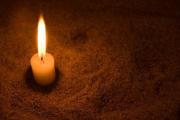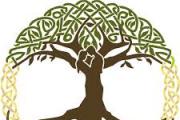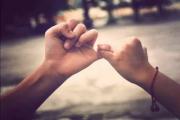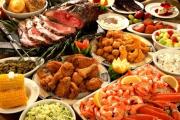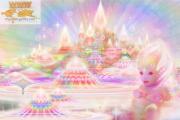Feelings of doubt and indecision. Reasonable doubt. The meaning of the word doubt in the Dahl dictionary What does doubt mean
doubt
cf. confusion, distorted. indecision, shaky bewilderment, reflection, hesitation of thoughts;
mistrust, suspicion and fear. Doubt what, hesitate, hesitate, think for two;
to doubt, distrust, disbelieve; in whom, to consider whom unreliable. Doubts of faith, conscience, disagreement with oneself, lack of firm and clear convictions. I'm in doubt, how to understand his words? He is always in doubt and indecision, he doubts everything and fears everything. Introduce someone into doubt, confuse; resolve whose doubts, reassure by explaining the matter. You can’t doubt this person, don’t lick him with doubt. A doubtful person, often falling into doubt, incredulous, cautious;
in whom others doubt, suspicious. A dubious case, the outcome of which should be in doubt, in which it is easy to make a mistake, or
incredible, incredible. Questionable honesty, not tested yet. -ness comp. adj.
Explanatory dictionary of the Russian language. D.N. Ushakov
doubt
doubt, cf.
Uncertainty about the truth of something. thinking about the correctness of something, unsteady, wavering faith in someone. Vankin's sincerity was beyond doubt. Chekhov. There was no doubt in him for a minute. Dostoevsky. - What is the doubt in this? The whole world knows about it. Griboyedov. - Stop! What kind of person?: For what business? Take Him into doubt! A. Ostrovsky. Raise doubt. Feel doubt about something. Shake your head doubtfully. Doubt took over. This is not subject to any (or the slightest) doubt.
Difficulty, bewilderment, if necessary, to resolve any. question. The arrival of the leader resolved all doubts. without (any) doubt or beyond (any) doubt - of course, indisputably, undoubtedly. You are no doubt right. - So you're coming? -Without any doubt! This woman, no doubt, was remarkably good-looking. Leskov.
Explanatory dictionary of the Russian language. S.I. Ozhegov, N.Yu. Shvedova.
doubt
Uncertainty about the truth of something, lack of firm faith in someone. Experience with. Take under s..sth. (begin to doubt).
Difficulty, bewilderment in resolving some. question. Resolve all doubts. 4 Outside (any) or without (any) doubt (bookish) - undoubtedly, certainly.
New explanatory and derivational dictionary of the Russian language, T. F. Efremova.
doubt
Uncertainty about the truth, the possibility of something; lack of firm faith in smth., smth.
Fear, suspicion.
Difficulty, bewilderment in the resolution of a smth. question.
A state of mental discord, uncertainty, hesitation.
Wikipedia
Doubt (film)
"Doubt" is an American drama film directed by John Patrick Shanley. The film is based on a play that won the Pulitzer Prize in 2005. Five nominations for "Golden Globe" and "Oscar" (2009). The premiere took place on October 30, 2008. The film was released on Russian screens on February 26, 2009.
Doubt (disambiguation)
Doubt:
- Doubt- mental condition.
- Doubt is a 2008 American drama film directed by John Patrick Shanley.
Doubt
Doubt- a mental state or state of mind in which there is abstention from a finally determined judgment, or / and bifurcation of one's doubts.
It should also be noted that doubt is inherent to a greater or lesser extent in any judgment, and the certainty or finality of a judgment is never absolute. A judgment can be considered final, or absolutely certain, only in the case of binding to a certain limited one.
Doubt is considered to be the fundamental difference between thinking and non-thinking nature (cybernetic device). The tasks facing thinking beings have an invariant set of solutions; it is impossible to do without empirical "weighings". Any weighing can only be done with an allowable error, and ultimately this means that there is doubt about the accuracy of this weighing, which is sufficient for a given case. By its very nature, the computer does not have doubt. The state of uncertainty paralyzes the operation of the machine. This, in turn, means that until the computer begins to doubt, before that we will not get a competitor to the human mind in the face of artificial intelligence. For such a case, scientists must find an algorithm for solving equations with many unknowns, programmers must program the machine, and if the machine can solve them, we will get a thinking cyber device. And this is impossible to do, due to the impossibility of solving an equation with n-th number of unknowns. Doubt is the mark of a thinking being.
According to the idea that doubt is a subtle form or symptom of a greater fear or phobia from the ego, psychologists and psychoanalysts often attribute this phenomenon to the early stages of life when it is formed: i.e., childhood. It is there, scientists argue, that doubts about one's own abilities and even the very self-identification of a person are implanted. The influence of parents and other influencers often has profound consequences on the child's subsequent self-image, with doubts often involved in such self-portraits.
In psychopathology, excessive doubt is commonly associated with obsessive-compulsive disorder, often referred to as the "disease of doubt".
Examples of the use of the word doubt in the literature.
By the first week of May there was no more doubt that, despite all his assurances, Abdullah tied his fate with the Arab League.
There are very rare cases when the first paragraph is given without a fight, without a fray of nerves, without doubt and searches, easily and naturally.
No, he never subjected doubt Judith's right to an abortion, for he did not even allow the thought of depriving a woman of such a right.
Camus believed that the starting point of his philosophy remained the same - this is an absurdity that puts under doubt all values.
Otari Abuladze dropped out, serious doubts that Saburov was involved in the murder.
Dolmaero looked with doubt, as if he was absolutely certain that Ruiz Ava could not be made safe.
Everyone always wondered why they didn’t have children, because my grandmother was not barren, and August was, according to rumors, the father of four children, in addition to Julia, who, without any doubts, was his own daughter.
Is not subject to doubt, - continued Mel, - that aircraft designers are working on the problem of noise reduction, but, frankly, few people in the aviation industry take this issue seriously, and, of course, great successes in this area - such as in the development of aircraft construction in general - we we don't see.
And immediately he slips doubt the captain that the rocking of the truck crane is dangerous and it is necessary to lower the jacks.
As soon as the car started, the poster arched under the pressure of the wind and took on such a dashing look that it could not be more doubt in the need to bang a car race on impassability, sloppiness, and at the same time, maybe even bureaucracy.
There was no doubts that Aggei Nikitich took a long time to compose his message and very carefully rewrote it in his beautiful handwriting.
In minutes doubt Regarding her most dramatic actions, Aglaya raised her eyes to the portrait, and Comrade Stalin, narrowing his eyes slightly, with a kind, wise smile, seemed to suggest to her: yes, Aglaya, you can do it, you must do it, and I believe that you will do it.
But Aglaya stamped her foot on him, and the fire chief signed the acceptance certificate, leaving doubts with me.
Having abandoned the agglomerators, Vasily Danilovich says that the commission appointed by the Council of Ministers finally rejected all sorts of doubts about this plant.
I have, without doubts, agoraphobia began, as I was convinced on the very day when I came out of solitary confinement and blew the watchman Serston's nose.
In many Religions, spiritual and esoteric Teachings, in the laws of Success written by the most successful people on the planet, doubt is considered a weakness, a sin and a shortcoming. In yoga, for example, doubt is one of the obstacles on the way to perfection, enlightenment, nirvana.
After reading materials on the topic “Doubt” on the Internet, I saw many different definitions, but I did not find adequate recommendations anywhere on how to say goodbye to the addiction to doubt.
Very often, doubt is confused with analysis and the intellectual method of finding the truth, so to speak. You have probably heard the expression “questioning”. When we analyze something, looking for answers or the most effective solutions to a problem, we may question some conclusions, arguments or predictions. But doubt in the general human understanding, in the context in which it is considered in Religion, for example, has a completely different meaning, and the consequences too.
What is Doubt? Definitions and meanings
- this is a weakness of the mind, an inability to adequately analyze and make decisions regarding something, as well as effectively implement these decisions.

In an absolutely negative sense, this is a destructive habit of the human mind incapable of making effective decisions. When a person cannot decide - to believe or not to believe, to trust or not to trust, to do or not to do, etc. There is even an expression - “the worm of doubt”, which sharpens and destroys a person’s faith: in success, in himself, etc.
Doubt, as a negative habit, destroys adequate thinking aimed at achieving the goal. Instead of solving the problem - how to reach the goal, what needs to be done for this, what steps to take, the human mind is occupied with absolutely useless chewing on the same thing: “succeed - fails”, “loves - does not love”, etc. . In this case, doubt completely blocks the soundness of reasoning, the possibility of analysis and effective decision-making.
Successful people say: “Doubts kill success!”, “Who doubts himself, he obviously has already lost”, “If you doubt something, then it’s better not to start, it means that you have no faith. And in whom there is no faith, he is weak and defeat awaits him”, “A doubting mind is an inefficient and fruitless mind”, “Doubt deprives a person of strength, de-energizes, devours all life energy ...”, “While a person doubts, he does not go anywhere ”.
- this is: 1. The destructive habit of the mind, its weakness, as we have already said, and 2. Emotion - which is generated by uncertainty, fear, lack of knowledge in some matter.
What replaces Doubt?

Doubt, depending on the situation, you need to replace:
- Doubt is replaced by prudence and analysis which leads to finding the most efficient solution.
- Doubt is replaced by Determination and Confidence, only it gives strength to achieve the goal.
- Doubt is replaced by Faith and. On - if this also applies to the Higher Forces. On trust - when it comes to relationships with people. Moreover, trust is not meant blind, but justified. Trusting people who do not deserve it (deceived, let down, etc.) is certainly not worth it.
If you have difficulty analyzing arguments and facts, with the ability to make a decision - that's what you need to learn.
If problems of trust in people- you need to learn to distinguish between people, to distinguish between good and evil in people, and to decide who and why you can trust and who not.
And to defeat the terrible habit of the mind chewing on the same thoughts, doubt and return to the same situation 100 times, especially when the event has already happened and you can’t change anything - you need to do the following:
- Recognize that endless chewing and doubting does not bring you one iota closer to the desired goal, but only depletes, burns your energy, nerve cells and time.
- Engage your mind in more efficient work, such as making a plan for further actions or other important mental work (it is important that the mind is solving problems that are useful to you, and not eating yourself or chewing gum).
If you have any questions -!


What is doubt? This is a condition in which a person is unable to make a quick decision. Doubt is also a term in psychology. And in this case, again, we are talking about a state that is characterized by refraining from a certain judgment. Doubt is good or bad? What do psychologists say about the difficulty in making a choice?
"Doubt" is a very common word. We very often use derivatives of it in everyday life. Nevertheless, behind it lies a huge meaning, which philosophers and writers have been trying to comprehend for more than two millennia.
The meaning of the word "doubt"
What did Vladimir Dal say about this state? Doubt is, according to the most authoritative explanatory dictionary of the Russian language, shaky bewilderment, indecision, hesitation of thoughts, reflection. There are many synonyms for this word. Everything depends on the context. In most cases, this word can be replaced by "indecision". Sometimes synonyms are "suspicion", "distrust", "fears".
"Doubt" is a noun used with verbs such as "experience", "sow", "inspire", "allow". But the adjective derived from it already has a negative connotation. What is, for example, a dubious idea? This is an idea that is not credible. And questionable honesty? Truthfulness that has never been tested before. So its existence raises certain doubts.
We have named synonyms for this word. Its meaning is clear, in general, even to a child. However, it should be said that the nature of doubt is quite complex. Almost every literary hero is not in vain in this state. As a rule, negative characters are deprived of the ability to doubt. Or fools. But we'll talk about them later.
Fear of making a mistake
Doubts visit every person from time to time. There is no getting away from them. Difficulty in making a choice accompanies us everywhere. The reason for this is the fear of making a mistake. Faced with a choice, a person looks for clues on the Internet, in books, consults with relatives. And the point is not at all that, having made a mistake, he will lose time, money, nerves. To make the wrong choice is to demonstrate one's incompetence, ignorance, lack of experience. Nobody likes to feel like an outsider.
It turns out that, solving his problem, a person first of all cares about his own reputation. It relies on other people's opinions. That is, he is looking for the right way out of the current situation, forgetting that such a concept as "correctness" is subjective. And what to do? How to act in moments when doubts hamper the will and the ability to form one's own, independent opinion? Act according to the dictates of the heart, not listening to anyone?
Lack of Doubt Is a Sign of a Personality Disorder
A person who is able to completely ignore public opinion is most likely suffering from one of the mental disorders. We live among people, and we cannot disregard their judgments. After all, man is a social being. There are two famous characters in literature who are antagonists to each other. The first is Hamlet. The second is Don Quixote. The first one doubted for days on end, and therefore argued on the topic "to be or not to be." The second without thinking twice entered into a fight with windmills. It was not easy for both the first and the second. True, Hamlet's doubts were caused not by public opinion, but by his internal dissonance. Don Quixote would certainly be registered in a mental dispensary in our time.
So, doubts - is it normal or not? Of course it's okay. A person who is always, under any circumstances, sure that he is right looks stupid. Moreover, among the greatest villains in history, there are mostly unquestioning personalities (Hitler, for example, was confident in the superiority of the Aryan race). It is possible and necessary to reflect on the correctness of this or that choice. The only area that should not be questioned is morality. There are principles of humanity and humanity that do not allow compromises. Regarding everything else, "thinking in two" is quite permissible.
- Doubt is a mental state or a state of mind in which there is an abstinence from a finally determined judgment, or / and a split (triple, etc.) of its formation, due to the inability of consciousness to make a discrete unambiguous conclusion. If the mind cannot find reasons, arguments that would allow it to come to an unambiguous decision regarding the correctness or fallacy of its opinion, then doubt is negative (that is, in fact, blocking further analysis and conclusions, "avoiding" discretization). If reason has revealed reasons and they are of equal, similar, comparative importance, thus making a unitary decisive opinion impossible, then doubt is considered positive (including invariance). In both cases, the result is: the impossibility of forming a final judgment (refraining from it). There are many examples where a person cannot overcome, discretize, transfer to the stage of certainty) his doubts.
It should also be noted that doubt is inherent to a greater or lesser extent in any judgment, and the certainty or finality of a judgment is never absolute. A judgment can be considered final, or absolutely certain, only if it is tied to a certain limited (fixed) point of view (so to speak, one coordinate system).
Doubt is considered to be the fundamental difference between thinking and non-thinking nature (cybernetic device). The tasks facing thinking beings have an invariant set of solutions; it is impossible to do without empirical "weighings". Any weighing can be done only with an acceptable error, and ultimately this means that there is doubt about the accuracy of this weighing, which is sufficient for a given case. By its very nature, the computer does not have doubt. The state of uncertainty paralyzes the operation of the machine. This, in turn, means that until the computer begins to doubt, before that we will not get a competitor to the human mind in the face of artificial intelligence. For such a case, scientists must find an algorithm for solving equations with many unknowns, programmers must program the machine, and if the machine can solve them, we will get a thinking cyber device. And this is impossible to do, due to the impossibility of solving an equation with n-th number of unknowns. Doubt is the mark of a thinking being.
According to the idea that doubt is a subtle form or symptom of a greater fear or phobia from the ego, psychologists and psychoanalysts often attribute this phenomenon to the early stages of life when it is formed: that is, childhood. It is there, scientists argue, that doubts about one's own abilities and even the very self-identification of a person are implanted. The influence of parents and other influences often has profound consequences on the child's (his) subsequent self-image, with doubts often involved in such self-portraits.
In psychopathology, excessive doubt is commonly associated with obsessive-compulsive disorder, often referred to as the "disease of doubt".
a state of uncertainty, indecision, hesitation in what should be considered true or correct (theoretical, moral, religious doubt). Doubt can have methodological significance and is a preliminary stage of knowledge, as it was, for example, with Augustine and Descartes (see Skepticism).
Great Definition
Incomplete definition ↓
DOUBT
uncertainty of the spirit, refusal to affirm or deny. There are two forms of doubt: 1) natural doubt that accompanies the lack of certain knowledge; 2) methodical or philosophical doubt, which implies doubt in all our knowledge, even in our perception of things and the world, since the principle of knowledge is not known to us. Such an attitude was characteristic of Plato, Descartes, Fichte. This is the starting point of any radical philosophy. There are two fundamental objects of doubt: 1) the external world: skepticism about the world of ancient philosophers (Pyrrho), which did not exclude a certain faith in God; 2) God: skepticism about God corresponds to modern positivism, which believes only in what it sees (Comte's positivism, materialism).






